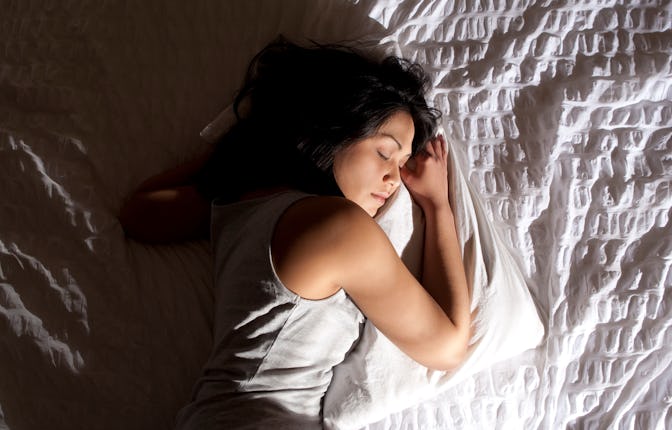When you should go the F to bed, according to science
Falling asleep earlier or later could mess with your body’s internal clock, which research has associated with all kinds of health problems.

If you’re up late scrolling through this story on your phone, you might want to rethink your nighttime routine. As someone who struggles with flipping the “off” switch after work hours — there’s always an email to send and laundry to fold — I totally get the temptation to succumb to revenge bedtime procrastination. But a new study suggests that sleeping at around 10:00 p.m. may be better for your overall health in the long run.
Based on data from more than 88,000 adults in the U.K., the study found an association between falling asleep at around 10:00 p.m. and a lower risk of heart disease, The Guardian reported. Since staying up late is also associated with drinking and other behaviors related to heart disease risk, we can’t say that it actually causes heart disease. But David Plans, a study author and senior lecturer at the University of Exeter, says that going to bed too late or too early on the regular could mess with your body’s ability to reset its internal clock, a.k.a. its circadian rhythm, each day — which is associated with not only heart disease, but also mood disorders, digestive problems, a compromised immune system, and a host of other health issues. Staying up late and sleeping in, for example, could cause you to miss morning daylight, a crucial cue that your body relies on to regulate its circadian rhythm.
The study, published today in European Heart Journal – Digital Health, involved more than 88,026 adults in the U.K., 3,172 of whom developed heart disease after researchers tracked them for an average of about six years. According to data from devices the participants wore on their wrists for a week, the researchers found that more than 80% of those who ended up with heart disease had dozed off at 11 p.m. or later. Around 15% knocked out between 10:00 and 10:59 p.m., while about 4% did so before 10:00 p.m.
The researchers found that participants who nodded off between 10:00 and 10:59 p.m. had a lower risk of heart disease than those who slept before or after that timeframe, according to The Guardian, even after accounting for age, socioeconomic status, and other risk factors.
The outlet pointed out that the study does have limitations, such as the fact that the participants skewed older — between 43 and 79 years of age — and white, making it hard to generalize the findings to the overall population. But until scientists conduct larger studies with a wider diversity of participants, Plans told The Guardian that the findings still bolster the importance of good sleep hygiene.
A chronically shot circadian rhythm has been associated with other health problems, too. Research has shown that it can increase your odds of fun digestive problems like irritable bowel syndrome (IBS) and constipation, as well as lower your immune defenses. A 2018 study correlated greater circadian rhythm disruption with a higher risk of major depressive disorder and bipolar disorder.
I know I sound like your parent right now. But look, I don’t make the rules. Study after study has shown that sleep is good for your health. This one takes the extra step of suggesting an approximate bedtime. While Plans told The Guardian that there isn’t enough data to definitively recommend going to bed at 10:00 p.m., it’s a start — and probably better for you than doomscrolling until dawn.